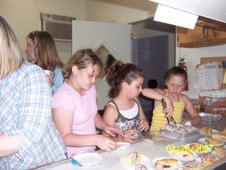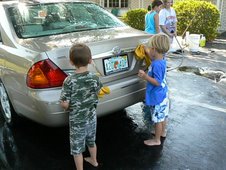The group's primary focus is on the rebuilding and repair of schools that were damaged or destroyed in the Genocide and now building new schools. There is really no money for sporting equipment. Kids tend to make their own soccer balls because a new ball in Rwanda costs between $80.00 and $100.00. That is outrageous but new soccer balls are looked at by the government as LUXURY items – hence the very large customs fees that take the price of a new ball out of reach for any family. Average annual wages for a man in Rwanda are $250.00 to $450.00 (depends on US Dollar conversion values). No family can afford that amount.
In order to assist, we are collecting USED soccer balls. The only requirement for donation is that the ball holds air. The truth is, the more USED it appears, the more likely it is to get through customs and to the children.
Following are some photos of the children and a video demonstrating how they make their own soccer balls.
RWANDA FACTS
The following is some statistical data from Rwanda:
o The population was 8 million people in 1993.
o In 1994 & 1995, 1 million people (12.5%) were slaughtered in a brutal holocaust.
o Violence still occasionally flares up taking lives in small genocidal attacks.
o More than one tenth of all children in Rwanda die before reaching their first birthday.
o Average life expectancy is 41 years.
o Under-5 child mortality is 17%.
o Per capita income is $250 (UN numbers - fluctuates yearly due to exchange rates and droughts).
o Pre-natal care and pre-natal education are rare.
o There are shortages in almost all medicines and medical care.
o People that need refrigerated medicines face great challenges as they have no electricity in rural areas and few refrigerators in large population centers – Hard to believe but people die because of this small issue!
o Several nearby countries (like Burundi, to the south of Rwanda) also suffered in the genocide.
o Rwanda has the largest percentage of population of Christians (60% Catholic, 10% Protestant, 1% Muslim, 29% pagan).
o Each parish has at LEAST one orphanage averaging 200 orphans.
o Each parish has at LEAST 1,000 “registered” orphans living with “sponsored” widows.
o Housing, especially in rural areas, is very rough and similar to conditions in Haiti.
o Many older orphans are severely traumatized because they saw their family butchered.
o Each parish has numerous widows who lost husbands - many lost children in the genocide.
o The four priests assigned to Christ The King Parish in the genocide were brutally martyred while trying to protect their people.
o Many parish schools and churches were destroyed or severely damaged in the genocide.
o AIDS has become rampant (UN figures are in the mid 20% range in cities – higher in the hinterlands).
o Large numbers of children are being newly orphaned as parents die of AIDS.
o Many new orphans and many babies abandoned in fields or at parish doors babies have AIDS.
o The economy is agricultural and suffers frequently from droughts.
o Medical facilities are very limited as many of the hospitals and clinics were destroyed.
o Only 8% of the total population has access to adequate sanitation.
o Only 41% of the population has access to safe water.




No comments:
Post a Comment